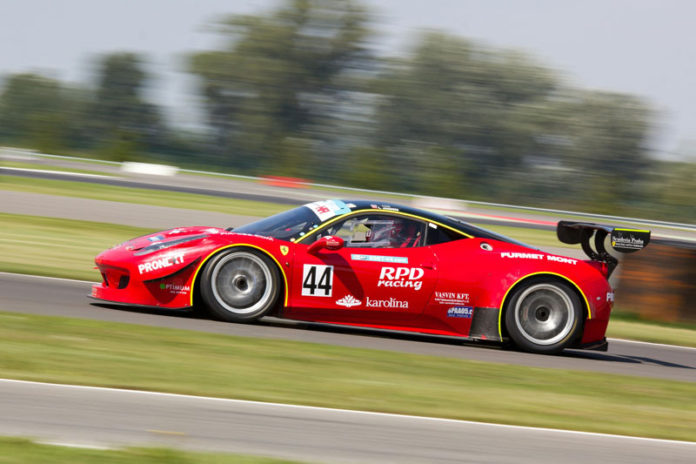
Published in cooperation between AskGamblers.com and SanBenito.com
Motorsport racing has captured many hearts of fans across the world, combining an electrifying blend of speed, precision and strategy. From the intricate Monaco streets in Formula 1 to NASCAR tracks in the United States, the sport has an undeniable allure that brings people together. Those who are avid followers will flock to stadiums, street circuits and off-road venues to witness the action in person. Even online platforms, like AskGamblers, highlight the global appeal of the sport through their Motorsport betting guides and tips, helping customers find the best betting platforms for motorsports and offers that they can use to further enhance their experience.
About Motorsports
The world of Motorsports is vast though, ranging from high-profile series such as Formula 1 to the niche pursuits like rallycross and drag races. Each attracts its own unique fan base of loyal followers, which inevitably adds to the overall growth of the sport. In such a crowded realm, it is hard to know how motorsports racing might rank by comparison with other sports, but it also differs in different regions.
Out of all sports, Motorsports is one of the most-watched in the world, estimated at a global audience of 500 million people tuning in annually to events like Formula 1. For example when the 2023 Formula 1 season began, it saw record-breaking attendance figures each weekend, including more than 440,000 fans at the Austin circuit. The ease of accessibility of the sport through live-streaming platforms and the efforts of racing organisations to engage younger audiences has played a significant role in boosting viewership.
Meanwhile, NASCAR is the American equivalent of Formula 1, dominating motorsports in the US, with Daytona 500 regarded as one of the most prestigious races. MotoGP is known for its high-speed motorcycle battles and is particularly popular in Europe, and rally racing has a captivated audience in Scandinavia and parts of Africa. Therefore there are many geographical variations reflecting the adaptability and universal appeal of motorsports today.
Technological Advancements
Technology is revolutionizing how fans are able to interact with the sports they love. Through new features such as AR and VR, viewers can now interact with races in different ways, experiencing it from the driver’s perspective as an example, getting viewers more involved and closer to the action than ever before. Online gaming platforms and eSports tournaments even have dedicated motorsport simulations, like F1 Esports, that are cultivating a new generation of fans. Online casino sites can then facilitate wagering opportunities around such events, further intertwining the sport with online communities.
And do not forget the significance of social media in amplification of motorsports. Drivers such as Lewis Hamilton and Carlos Sainz have millions of followers through their social channels, engaging with fans and actively promoting the sport they part-take in. This direct connection to their fans fosters a sense of relatability and loyalty, encouraging fans to follow them and engage in the broader racing series.
The Economics of Motorsports
Motorsports is more than just an entertainment source, it is a massive economic engine. Take Formula 1; it generates billions annually through sponsorships, ticket sales, merch and broadcasting rights. High-profile sponsors like Petronas and Shell have invested a significant amount of money in racing, recognizing the potential global brand exposure they could get.
Regardless of motorsport brands such as Formula 1 being recognized globally, the popularity of specific motorsport disciplines varies by region. For example NASCAR dominates the United States, where oval track racing resonates deeply within American culture.
Yet despite its global appeal, motorsports face challenges in sustaining and growing its fanbase, just like any other industry. Environmental concerns regarding fuel consumption and emissions have led to many criticisms, prompting organizations to explore greener alternatives.
Another challenge is the high cost of participation. Motorsports remains very expensive, often limiting entry to those of a more affluent background or significant sponsorship backing. The financial barrier has sparked discussions about inclusivity and the need for the sport to promote diversity in racing.
The popularity of motorsports is undeniable, as it captivates an audience through the thrill of competition, technology and spectacles. From the very high-profile and glamorous Formula 1 to local karting, the sport caters to a diverse range of interests and preferences. As the sport continues to innovate and address its challenges, the future looks promising by embracing sustainability, fostering inclusivity and leveraging technology.









